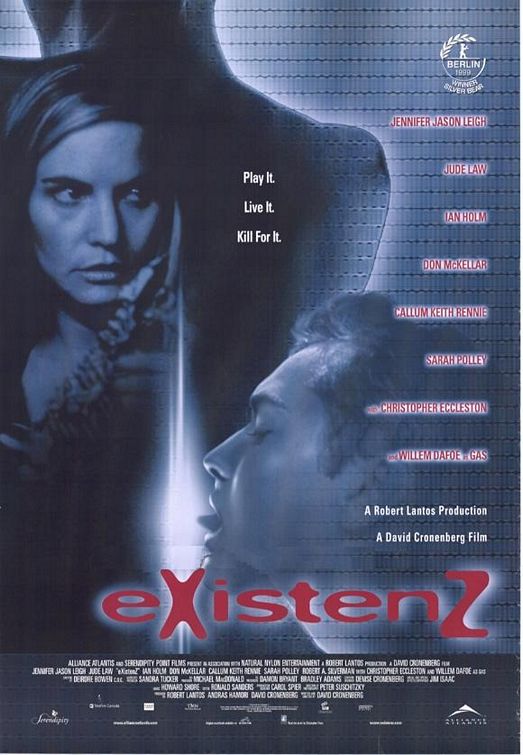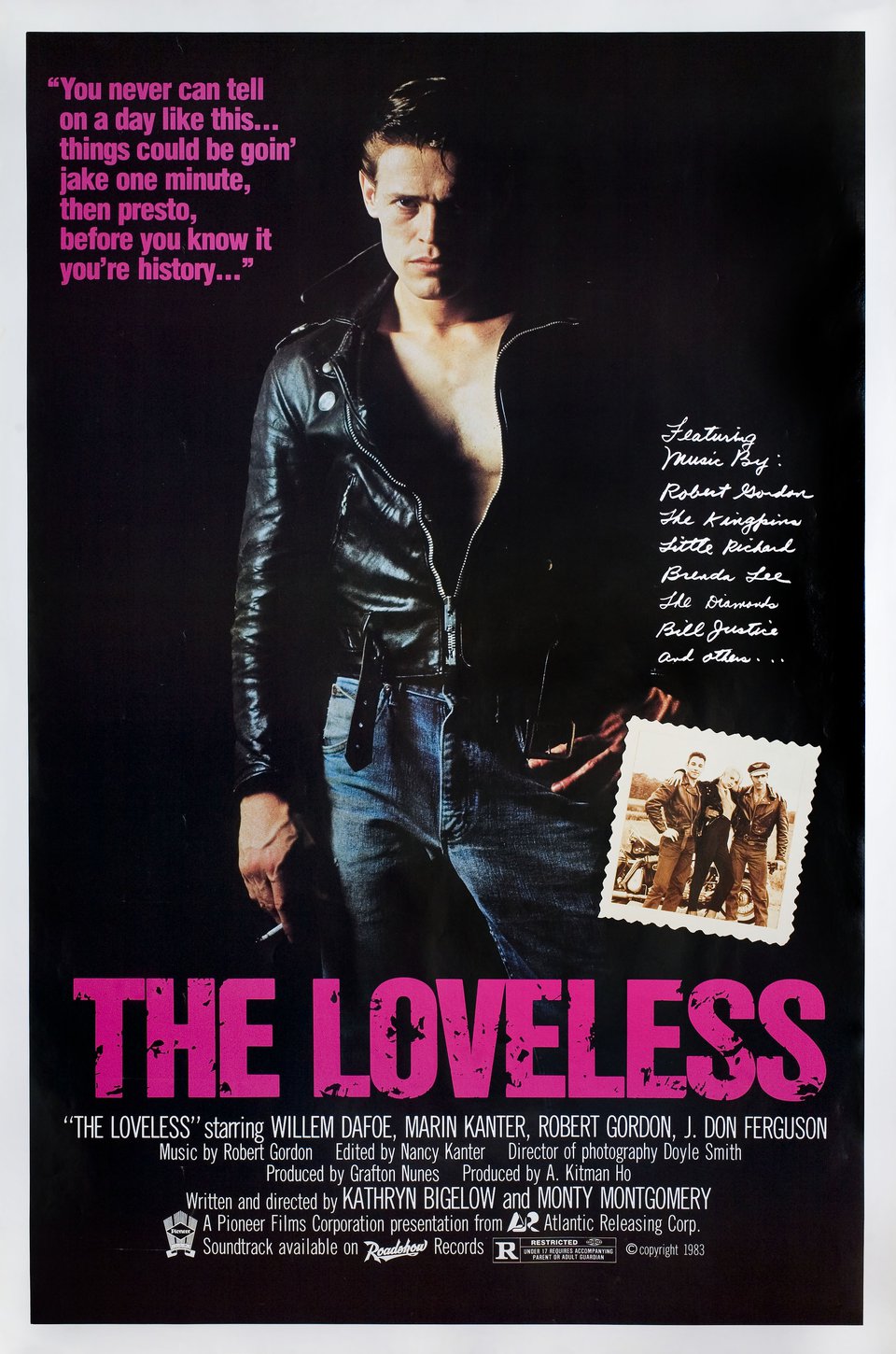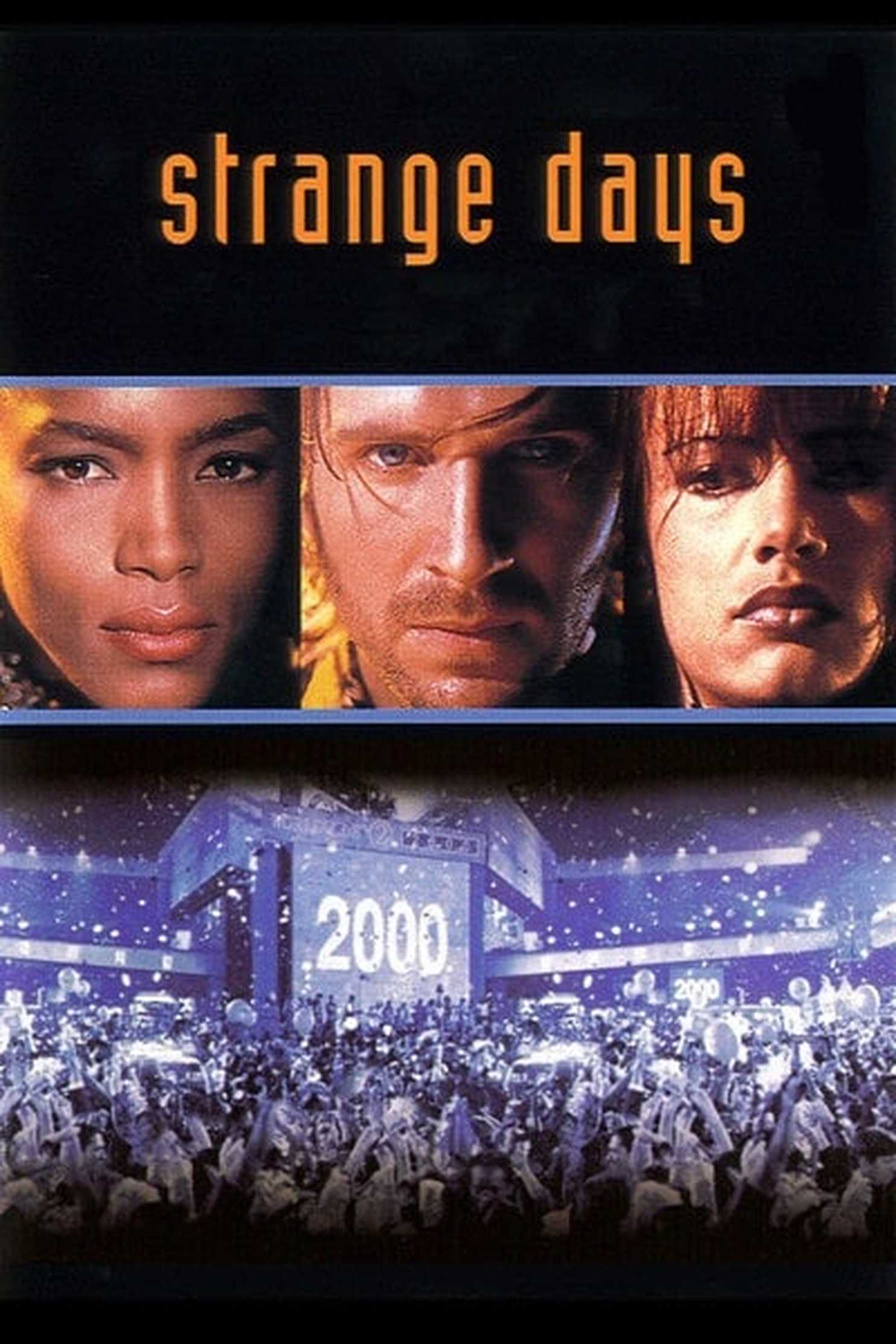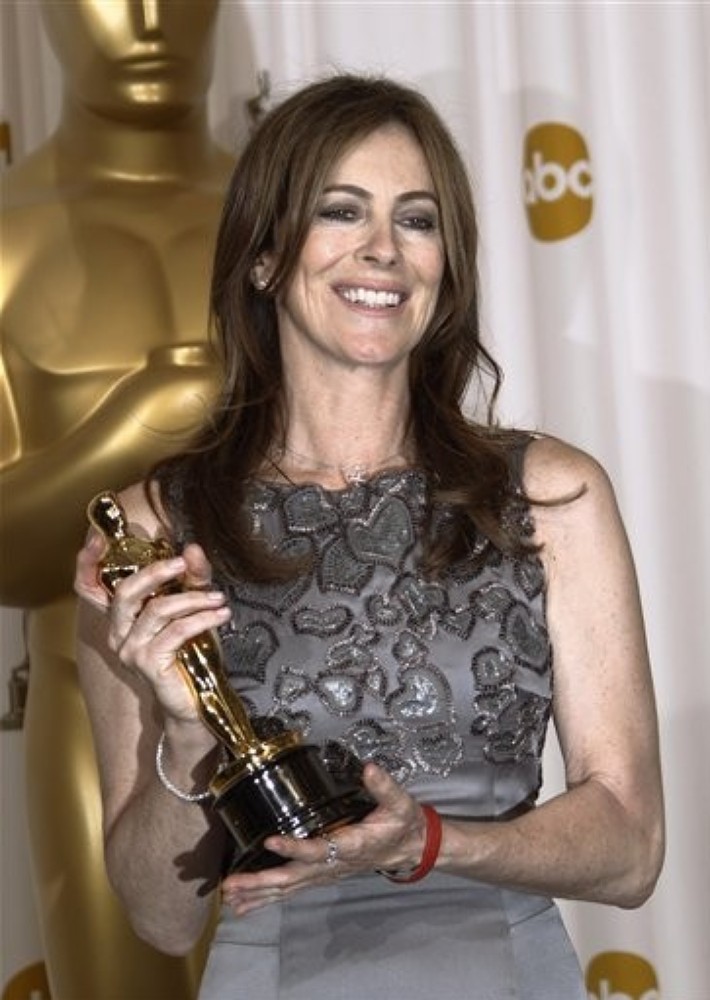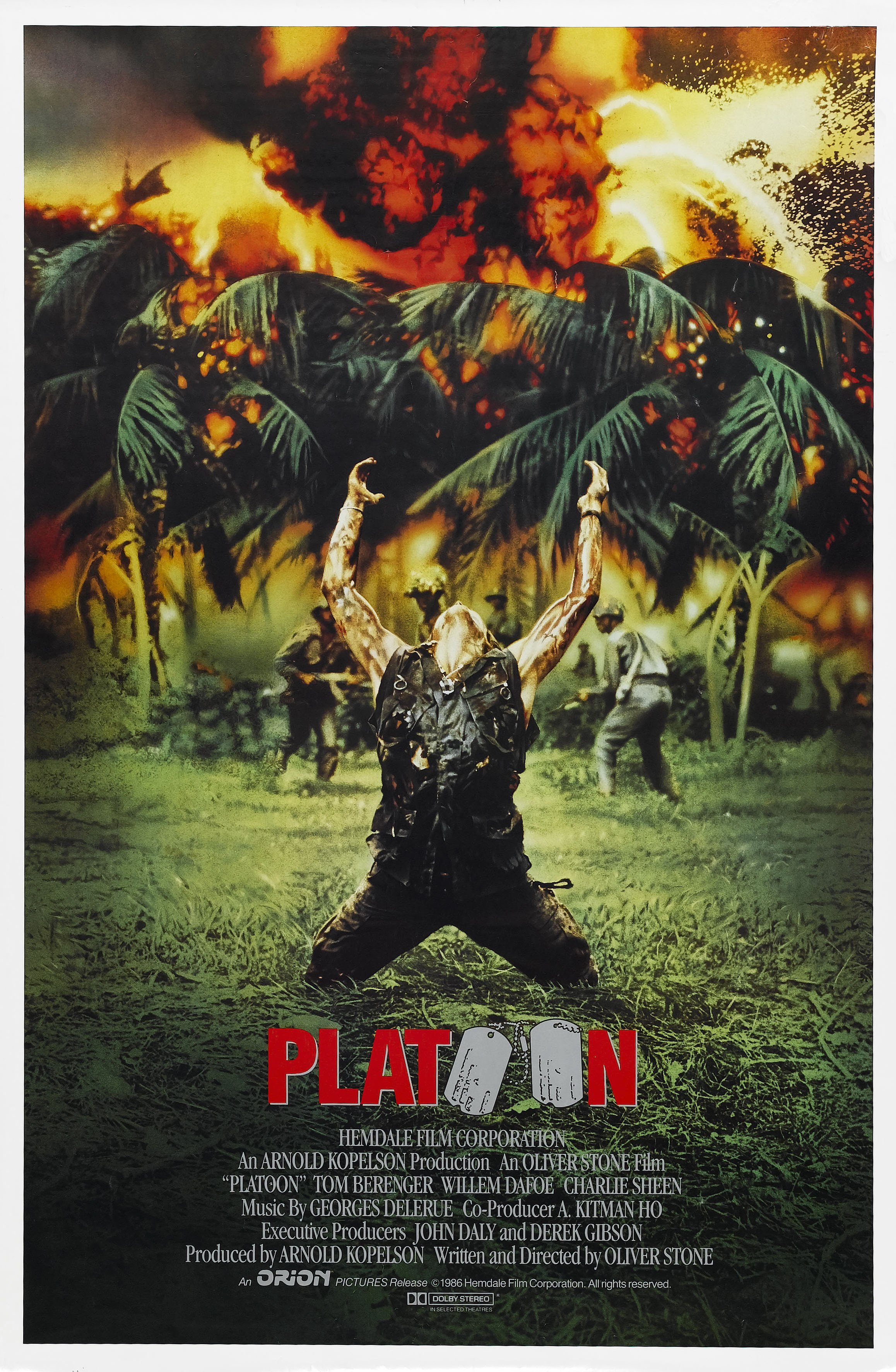‘Fantastic Mr. Fox’ is One of Wes Anderson’s Most Inspired Works
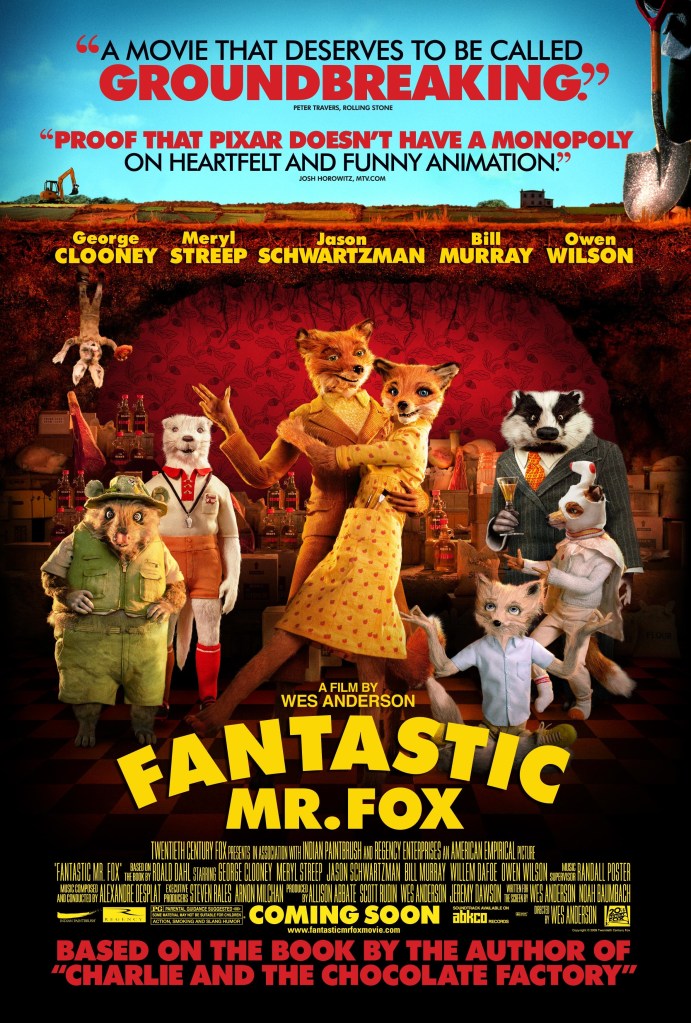
WRITER’S NOTE: This review was written in 2009.
After watching “Fantastic Mr. Fox,” I am convinced Wes Anderson should make as many stop-motion animated movies as he possibly can. Nothing against his live action work, but this form of animation seems really suited to Anderson’s unique blend of comedy and dysfunction. While his last film, “The Darjeeling Limited,” was very good, it started to seem like he had been dealing with the same themes once too often. But with the brilliantly made “Fantastic Mr. Fox,” his material is given a freshness which, for a moment, seemed to have escaped him. I wasn’t sure what to expect, but this turned out to be one of the most enjoyable movies I saw in 2009. As a result, any frustration I had over not being able to see “Avatar” (it was a family outing, and it didn’t seem right for my 5-year-old niece) was completely forgiven.
“Fantastic Mr. Fox” is based on a children’s novel written by Roald Dahl whom Anderson considers one of his personal heroes. Dahl is the same man who wrote “Charlie and the Chocolate Factory” and “James and the Giant Peach” among other stories, and his work is characterized by a lack of sentimentality and a lot of dark humor. Judging from “Rushmore” and “The Royal Tenenbaums” with their strong black humor, it’s no wonder Anderson digs Dahl!
The Mr. Fox of the title is a cool and exceedingly clever animal, and we first see him with his wife sneaking into a farm to steal food. They are, however, caught in a trap which has his wife pointing out they should choose a safer form of work. Oh yeah, she also tells him she’s pregnant, and this changes the dynamics of their relationship in a heartbeat. We catch up with these two a couple of years later after they have found a home within a hole in the ground. Mr. Fox is now a newspaper columnist, and he and his wife are parents to a son, the sullen Ash, who constantly feels unappreciated in all he does. Still, Mr. Fox does not like where his family lives and promises to do better by them. Despite the warnings of his lawyer, Badger, he ends up buying a new home in the base of a tree. These new lodgings are also coincidently right near the gigantic farms owned by three ugly looking farmers: Walter Boggis, Nathan Bunce, and Franklin Bean. So, of course, this gets Mr. Fox all excited and back to his usual tricks of stealing food and drink while the rest of the family remains unaware. To quote another fox from a vastly different 2009 movie, “chaos reigns!”
The first thing people will notice about this movie is its “star studded” (what does that term mean anyway?) cast of actors. Voicing Mr. Fox is the most debonair of movie stars right now, George Clooney. With this, “The Men Who Stare at Goats” and “Up in The Air,” I can’t help but wonder when Clooney gets the time to sleep. At this moment, he’s everywhere, and his constant presence would be ever so annoying if he weren’t such a terrific actor. Clooney perfectly captures Mr. Fox’s confidence without ever becoming overly smug, and he exudes the cleverness this character has in getting back at the three farmers.
Meryl Streep, who has also had a busy year with this, “Julie & Julia” and “It’s Complicated,” voices Mrs. Fox. I actually wonder how much sleep she gets as well as Streep always seems to be learning a new accent she has not taken on yet. Streep is the perfect contrast to Clooney’s charmingly reckless nature, and she serves as the conscience Mr. Fox needs to hear out more often. Streep doesn’t do anything incredibly different with her voice like she did for Julia Childs, but its warmth is quite seductive at times.
Anderson has also employed many of his regulars for “Fantastic Mr. Fox” as well. Jason Schwartzman who was featured quite prominently in “Rushmore” and “The Darjeeling Limited” voices Mr. Fox’s son, Ash. Schwartzman perfectly captures the angst Ash feels at never fully winning his dad’s approval, and you feel Ash’s desperation as he goes to dangerous lengths to get any approval. Owen Wilson, who co-wrote “The Royal Tenenbaums” with Anderson, has a cameo voicing Ash’s athletic coach, Skip. You can tell its Wilson right away, and he gives Skip a wonderfully dry voice which gets a good number of laughs whenever he appears. Even Bill Murray, who has had a role in just about all of Anderson’s movies, voices Mr. Fox’s lawyer, Clive Badger, and he always seems to fit in perfectly in Anderson’s cinematic universe. And let us not forget Wallace Wolodarsky who voices the confidence challenged Kylie Sven Opossum who somehow gets sucked into Mr. Fox’s schemes against his better judgment.
Others to be found here are Michael Gambon, the current Dumbledore of the “Harry Potter” movies, who voices one of the farmers hellbent on eliminating the thieving Mr. Fox, Franklin Bean. Eric Chase Anderson, who is responsible for those illustrations of Anderson’s movies when they are given Criterion Collection releases, voices Mrs. Fox’s nephew Kristofferson who is perfect in every way Ash is not. But the most surprising voice here is from the actor who voices Rat, Bean’s security guard. Rat was a French character, so I assumed the actor voicing him was French. Turns out that it was actually Willem Dafoe! That’s right, the same guy who was in that other delightful 2009 movie with a fox, “Antichrist.”
With just about all of animated movies being done with computers and digital effects, it’s refreshing to see other filmmakers go a little retro with the stop-motion animation. The work here is brilliantly done, and I was surprised at how lifelike everything looked. Movies like these must require an exceeding amount of patience to make because they clearly take years to produce. It also fits right in with Anderson’s quirky sense of humor which remains intact a good ten years or so after “Rushmore.”
I also really dug the soundtrack Anderson chose for “Fantastic Mr. Fox.” Each of his movies contain a great selection of music which veers from classic British rock songs to American rock among other genres. With this film, Anderson includes songs from the Beach Boys and Burt Ives which fuel the proceedingas with an undeniable sense of innocence and adventure. It also made me an instant fan of The Bobby Fuller Four whose song “Let Her Dance” plays during one of the most joyful moments this film has. Composing the score is Alexandre Desplat who has composed music for movies like “Firewall” and “The Curious Case of Benjamin Button” among others. I love how Desplat captures the infectious spirit of everything which takes place.
Is this a kid appropriate movie? I think so. It did get a PG rating which seems appropriate. Sure, there are many bottles of alcoholic apple cider and some smoked chickens which might give you the wrong impression of the goings on being displayed, but I really think this movie is harmless. Compare this to the recently released sequel to “Alvin and the Chipmunks” which has not so subtle references to classic movies like “Taxi Driver” and “Silence of the Lambs” among others. This film is not just aimed at kids, but for the whole family as well.
While many will be more likely to view this movie on DVD or Blu-ray (or VHS if it’s still available), ” Fantastic Mr. Fox” really is a fantastic piece of work which deserves a big audience. Anderson, along with co-writer Noah Baumbach (“The Squid & The Whale” and “Margot at the Wedding“), has managed to take his fascination with families that are less than perfect and put them in a context which will not scar your kids for life. It was also cool to see Clooney play a character who, unlike the one he portrayed in “The Men Who Stare at Goats,” was not afraid to dance.
Was it worth not going to see “Avatar” this day and watching this instead? I hate to say it, but yeah.
* * * * out of * * * *
